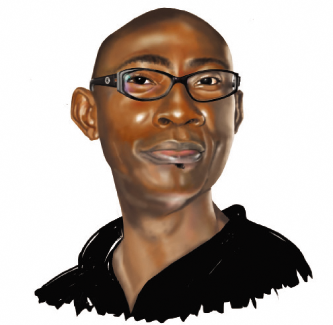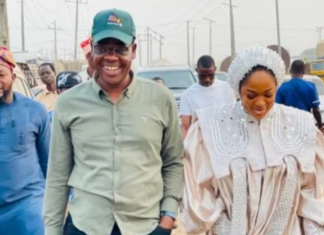By Oguwike Nwachuku
Recently, when former governor of Delta State, James Ibori said Nigerians should be more concerned with whether the youth are ready for leadership as opposed to the call for mere generational shift at the nation’s helm of affairs, not many Nigerians took that comment lightly.
Ibori was arguing on the strength of calls from those who say that President Muhammadu Buhari should not to seek re-election in order to pave the way for a youth to lead the country. To Ibori, the call is unjustified.
Different meanings had been read into the comment.
Those who input political meaning to it were more concerned with whether Ibori is making a case for a full re-launch into political limelight, having just returned from a prison sentence in the United Kingdom.
Those in this category believe Ibori was making a case for President Buhari and by extension, using his pro-old people’s commentary to discreetly solicit state pardon from the Buhari-led All Progressive Congress (APC) government.
Obviously, those in that category are the people who see Ibori as the only political sinner in Nigeria following the ordeal he went through recently, and would stop at nothing to further demonise and diminish his political relevance, which I doubt if they can.
Regardless, there are others who have critically evaluated Ibori’s comment and are quite in agreement with him as regards the level of preparedness of our youths to assume political leadership in a country where, notwithstanding their huge and vibrant population, they have remained largely circumscribed and nonchalant.
Those who are on the side of Ibori think that what the nation needs currently is the participation of courageous and visionary youths in politics as age has nothing to do with good leadership.
Proponents of a generational shift in the country’s political equation are fixated on the notion that those who are already controlling the levers of power, the old, familiar faces, should just quit the stage and invite them to come and take over.
Such agitation has of late got expression in the popular “Not too young to run” bill which has also been passed at the National Assembly with the agitators making a case for the youths to be given the better chance to contest in elective positions.
Before I continue, let me refresh our mind to what Ibori said in an article he stated that politics is a “game of ideas and numbers” and that the Nigerian youths need to pay “the required price.”
Said Ibori: “The choice we face is not that of ‘paedarchy’ or ‘paedocracy’ versus gerontocracy.
“This age-related argument should not be aimed at Buhari. The constitution gives him the right to seek the presidency for two terms. The argument for and against him should be based on his record of achievement.
“The young ones need to make the necessary sacrifice, study the problems facing the society, master how to solve the problems of the various parts of the Nigerian federation.
“Has the youth trumped the old in behaviour, morality, leadership, integrity and frugality? How have our youth fared in the professions, the military and the civil service? Do they even hold out any hope for the nation?”
Ibori had also cited instances of foreign youthful world leaders like the French President, Emmanuel Macron who was 39 years old when he was elected and former United States of America President, Barack Obama, himself 46 years old when elected, and how they came into offices fully prepared because they had something to offer the society.
Ibori continued: “The election of a Macron in France may have galvanised a section of Nigerians to think that the time is now. “Macron did not contest for office solely on the basis of being a ‘youth’; he ran in a national election based on concrete ideas.
“Ironically, the problem of Nigeria has been caused, in large part, by exuberant young men who were at the helm of affairs in the first decade of the nation’s independence.”
Obviously, Ibori was referring to a Major Chukwuma Nzeogwu, who, at 28, oversaw January 15, 1966.
Indeed, there are a lot of senses in what Ibori is saying regarding the preparedness or otherwise of the Nigerian youths to rise to the challenge of political leadership. This is more so because all over the world, political leadership does not exclude the youth in so far as they are interested and ready to lead.
Those who argue that Buhari is old and should allow the younger ones to come into the political picture and supplant the old political order are only right to the extent that there are ready made selfless, committed young men and women who are out to lead by example. Not those who want power in form of handout.
Yours sincerely for one will not advise Buhari to seek re-election at 76 if he were to be my father. Reason is that at his age, he has paid his own dues and deserves to rest and can only volunteer pieces of advice if he is so consulted.
Unfortunately, our own society has deteriorated to such where the youths are not bothered about what is happening around them, and when they do, they simply want to be paid upfront by those who are interested in determining their future (the old leaders) due to their foolish disposition.
Since Nigeria’s return to democracy in 1999, the youths have remained nonchalant and largely noncommittal as far as issues affecting them in the country are concerned.
Unlike the Macron and Obama of this world they are suddenly emulating and asking for power to be transferred to them on the basis of age, our youths have failed to understand the strength in their population and education which are two key indices that are germane to their quest for political leadership and power.
It beats the imagination that in a country like Nigeria with a population of more than 170 million, and youthful demography of more than 30 million, the young ones cannot determine who governs them and how they ought to be governed.
Our youths are always at the forefront of supporting the old political order. They are often the first to label the few young political aspirants and candidates as inexperienced and lacking in financial strength to prosecute their political aspiration.
A clear example was when Buhari was gunning for the presidency and how the youths said their lives were incomplete without the old man.
Since 1999, it has been the same thing, and I do not see them changing from that mentality because their preoccupation for now is just the things they crave to satiate their immediate appetite.
The strategic thinking of our own youths only find expression in the things that undermine their future, retard their physical, mental and psychological development and keep them perpetually subservient to their fathers and uncles who over the years, have dominated and got themselves entrenched in the political firmament of Nigeria.
What is even more disturbing is that those our youths have surrendered their future to as their leaders, do not, sincerely speaking have better exposure and education.
What really interests the youths of today are nothing but good living that comes, not out of hard work and painstaking commitment to their future, but on things their parents and uncles saw as a taboo in the days of the yore and tried as much as possible to avoid.
I am talking about the involvement of our youths in yahoo and related internet fraud, gambling, clubbing, drug addiction, smoking, womanizing, thuggery, and other despicable activities that provide temporary satisfaction and happiness to them.
In an age where the use of technology has bred fresh style of living and compounded the moral standing of our youths, they spend ample time sagging their trousers, playing Baba Ijebu lotto, Beta9ja, and related games where their eyes are fixated on instant monetary reward that will further propel their appetite for the vices already identified above.
Are we then surprised that since the return to democratic governance more than 18 years ago, the teeming population of our youths have become enmeshed in motorcycles (okada and Keke) riding, just because they are too weak to negotiate sustainable and life changing things from the so-called old political leaders.
They are not even perceptive enough to ask such political leaders who make advances to them only when elections are drawing closer, with motorcycles and tricycles, to invest in farming and other more enduring projects they have interest in that will help guarantee their economic and social stability on the long run.
When, therefore, we talk of power shifting to the youths, one begins to wonder whether we are talking about the youths we already know or they will be imported from elsewhere.
The tragedy of today’s youths can also be gleaned from the family where parents have long abdicated their responsibility in the name of career pursuit and quest for monetary stability and empowerment.
By the way, such quest for economic empowerment is, more often than not, the pursuit of corrupt tendencies by the parents of our so-called youths some of who have no regard for common patrimony and will stop at nothing to accumulate wealth beyond the imagination of their children.
That, of course, explains why most of our youths loath hard work and painstaking engagement because their parents have already done “all the work” thereby raking in all the money their wards need whether now or in the future, either by hook or crook.
Hardly can you see any family in Nigeria today where the home is not run by either a maid or a nanny. The implication, however, is that the upbringing of the wards has been largely mortgaged since there is a limit to what the maid or the nanny can do to instill discipline and morals in the wards under their care.
What happens in the homes by way of moral decadence and indiscipline are also exported to the schools and churches where the children are expected to be mentored by the teachers.
It is the totality of these that is at the root of the unpreparedness of the Nigerian youths to assume responsibility and challenges that can help to alter their future forever, and so, resort to asking that power be handed over to them on a platter.
Just last week, news was awash that Senator Jeremiah Useni, the man who has been around in the country for too long and who qualifies as grandfather in Plateau State politics is still nursing the ambition of becoming the governor of that state at 76.
And you know what? The Plateau State youths are already queuing behind Useni for support and would be glad to do so against a youthful aspirant who probably may not have the same resources that Useni has to prosecute an election.
A similar thing is also happening regarding Buhari’s intention to run or not. Those familiar with the debate on the social media as regards who wants Buhari to take another shot at the presidency will understand that the youths are more in number in the propaganda machinery already in place on that platform to give Buhari undue advantage over the more youthful, educated, energetic and lively aspirants.
Those who tell Buhari not to run are not helping the youths of this country. I think time has come for the youths to challenge Buhari with their own youthful candidate in 2019, work with and for that candidate, and ensure he or she gets elected to lead the country the way the likes of Macron and Obama they are trying to mimic did. To that extent, Ibori is right.














